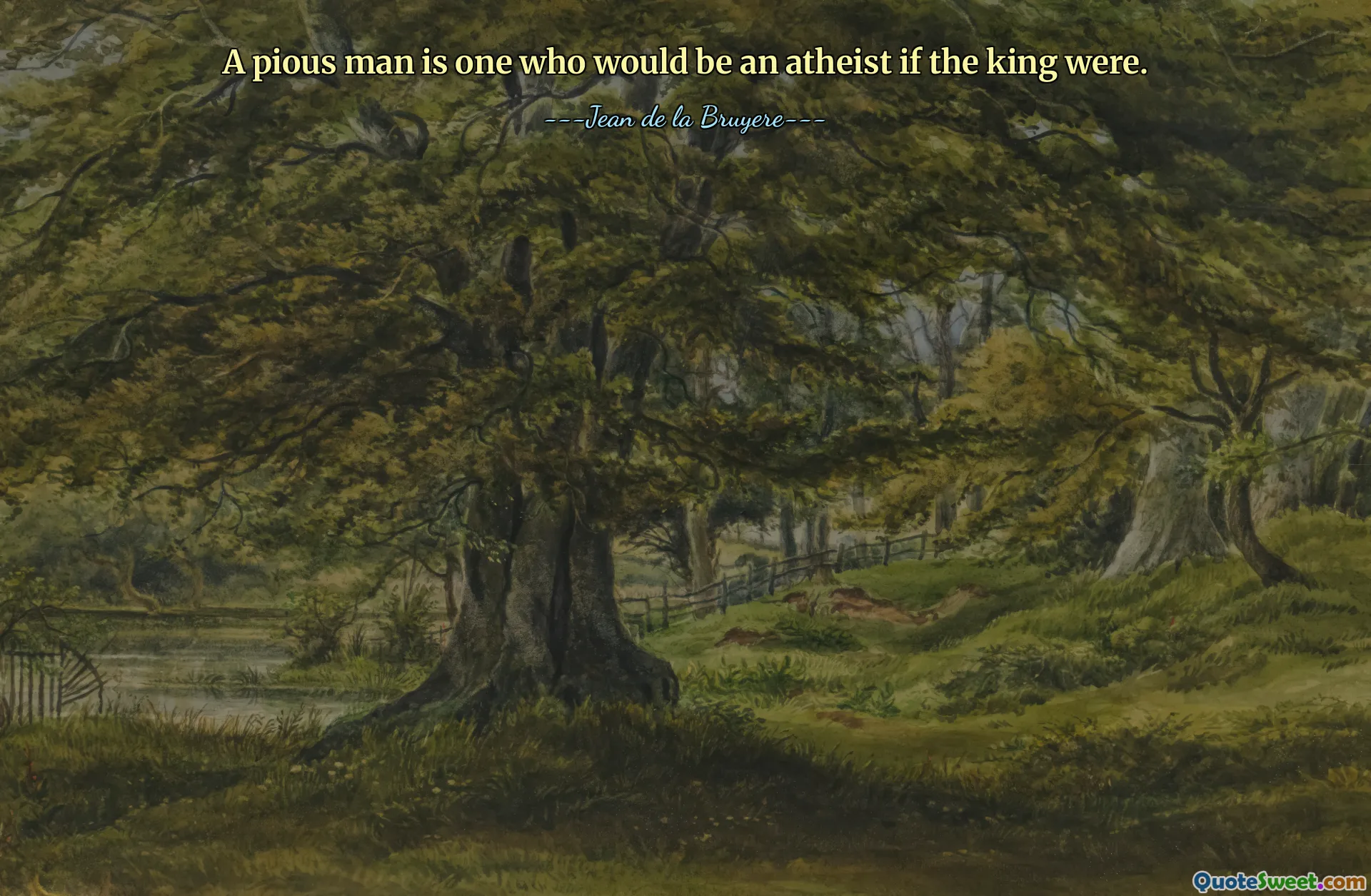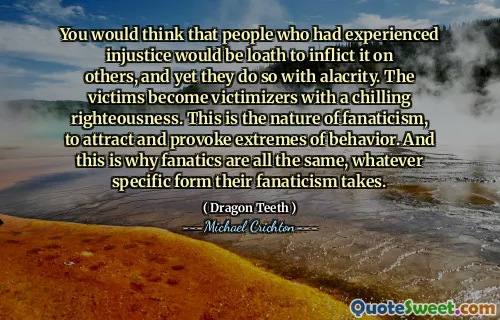
A pious man is one who would be an atheist if the king were.
📖 Jean de la Bruyere
This quote by Jean de la Bruyère invites us to reflect on the distinction between genuine piety and superficial or socially motivated religion. It suggests that true faith should be unwavering and internal, not contingent upon external pressures, authorities, or potential rewards. When someone’s belief is so fragile that it only exists in the presence of societal or political approval, it raises questions about its sincerity and depth. Authentic spirituality is rooted in conviction and internal principles, rather than the fear of repercussions or desire for recognition.
The statement also highlights the influence of power dynamics on personal beliefs. Historically, the actions and beliefs of individuals often aligned with the prevailing authority, especially when repercussions for dissent were severe. If a man would abandon his faith when faced with the potential disapproval or punishment from the king, his sincerity and commitment could be doubted. Conversely, someone who maintains their beliefs regardless of external circumstances demonstrates a profound moral integrity.
This insight points to the importance of integrity and authenticity in one’s convictions. It challenges individuals to examine whether their beliefs are truly their own or merely performative gestures responding to societal expectations. In modern times, this can be related to the idea that true ethics should withstand societal pressures and temptations.
Ultimately, the quote provokes a deep introspection about the nature of belief and the importance of internal consistency—reminding us that true virtue is often tested when circumstances threaten to undermine it. It’s a call for authenticity and moral courage, emphasizing that genuine piety is rooted in internal conviction that remains firm in all situations, not just when it is convenient or safe.











